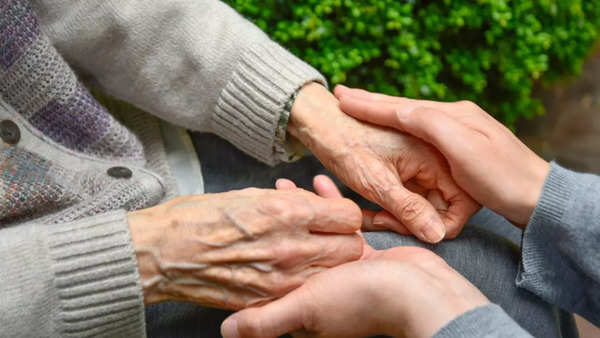Imagine picking up your toothbrush one morning and not knowing how to use it. You might try again, but the confusion doesn’t go away. For some people, this isn’t just a simple moment of forgetfulness—it could be a sign of
dementia
, specifically
Apraxia
, the inability to perform learned motor tasks even though the person wants to and is physically able to do so. Recognizing these small changes is important because catching them early can help get the right care and support, which can slow down the decline in memory and thinking.
Dr. Richard Restak, neurologist, neuropsychiatrist, author, and professor in his new book discusses how dementia is not about forgetting how to do a certain task but also the inability to perform actions in the right order.
“A person with apraxia may be able to recognise and even name a toothbrush and toothpaste but may be unable to carry out the act (praxis) of squeezing the toothpaste onto the toothbrush,” he wrote.
Or they could struggle to put the brush in their mouth and scrub their teeth. “All the muscle components are present but can’t be coordinated,” Restak shared.
He also discussed other
A’s of Alzheimer’s
in his book.
The four A’s of Alzheimer’s disease
Dementia covers different types of memory and thinking problems, with Alzheimer’s being the most common. Catching Alzheimer’s early is key because it helps get the right care and makes everyday life a bit easier while slowing symptoms down. One way to spot it early is by looking for the “Four A’s”: Amnesia, Aphasia, Agnosia, and Apraxia. These signs can show up early and start making everyday tasks more difficult.
Amnesia: Memory loss and confusion
Memory loss, or Amnesia, is usually one of the first signs that something’s not quite right. At first, a person might forget recent events, like a conversation they just had or where they left their keys. They might even ask the same question again and again, not realizing they’ve already asked. As Alzheimer’s progresses, even older memories can get mixed up, which leads to more confusion. If you’re caring for someone with memory loss, staying patient, keeping a regular routine, and using reminders like calendars or notes can really help them manage day-to-day tasks.
Aphasia: Difficulty with communication
Another early sign of Alzheimer’s is Aphasia, which means trouble with language. A person might have a hard time finding the right words or mix them up, making it hard to understand what they’re saying. They might also struggle to follow conversations or read simple instructions. This can make them feel frustrated or lead them to avoid social situations. If you’re caring for someone with Aphasia, try to use simple language, gestures, or pictures to help explain things, and give them enough time to respond without hurrying them.
Agnosia: Difficulty recognising familiar things
Agnosia happens when someone can’t recognize things they’ve seen or heard before, even though their senses are working normally. For example, they might not recognize their own spouse or have trouble identifying everyday objects like a spoon or toothbrush. This can be really confusing and upsetting for both the person with Alzheimer’s and their loved ones. To help, caregivers can gently remind the person of who they are, put labels on things around the house, and make sure the environment is safe by removing potential hazards.
Apraxia: Trouble with purposeful movement
Apraxia is when someone has trouble doing tasks that need coordinated movements, like brushing teeth or getting dressed. Even though they might be physically able to do these things, their brain struggles to figure out the right steps. This can make everyday tasks, like eating or personal care, harder. Caregivers can help by breaking tasks into smaller steps and offering support, but it’s important not to take over completely. Simple changes, like using easy-to-put-on clothes or simple utensils, can also help them stay more independent.
Spotting these early signs and understanding how they affect daily life is key to giving better care and support. There’s no cure for Alzheimer’s, but catching it early and using the right strategies can improve life for both the person with Alzheimer’s and their caregivers. The goal is to make sure the person feels respected, understood, and as independent as possible for as long as they can.
Shocking Scare: Ron Howard’s Wife Nearly Burns Hair in Birthday Accident
I’m Manas Ranjan Sahoo: Founder of “Webtirety Software”. I’m a Full-time Software Professional and an aspiring entrepreneur, dedicated to growing this platform as large as possible. I love to Write Blogs on Software, Mobile applications, Web Technology, eCommerce, SEO, and about My experience with Life.






